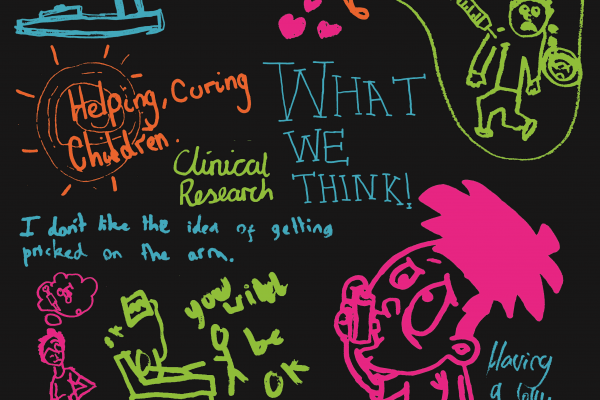Children and clinical research: ethical issues
Report
Published 14/05/2015
Researchers’ responsibilities
Researchers have responsibilities towards children and young people too. Like parents, they should treat children as individuals, think about their developing ability to make decisions, and be concerned for their welfare. As professionals, they also have extra responsibilities. They need to be:
- Trustworthy: Children and parents will only feel able to take part in research if they can trust researchers.
- Open: Researchers need to share information clearly and honestly with children and parents – when inviting them to take part in research, during the research itself, and afterwards. They also need to be willing to share information and work with other researchers.
- Courageous: Some research with children and young people is difficult to do, and it may seem easier just not to do it. But if research isn’t carried out, then children will not have the best possible healthcare.
Making sure children and young people aren’t vulnerable in research
People often think that children and young people are vulnerable in research. Sometimes worrying about children and young people being vulnerable means that research just doesn’t happen.
We think that the best way of preventing vulnerability is through researchers working in partnership with children, young people and parents. One way of doing this is for researchers to involve children, young people and parents in the design of their research from the beginning. This kind of partnership can help make sure that children and young people are not placed in situations where they may feel vulnerable.
We think that:
- Researchers should involve children, young people and parents when developing their studies.
- Groups like Young Persons’ Advisory Groups (YPAGs) are a good way of doing this.
- Commercial companies should help pay for the costs of running groups like YPAGs. For example companies could contribute to a central pot of money to help fund lots of groups.
Who makes sure that research is ethical?
In most countries, researchers are only allowed to do research involving people if they have the permission of a research ethics committee (REC). The REC is a group of people who are interested in research for different reasons, such as researchers themselves, health professionals such as doctors or nurses, or ordinary people who think that research is important.
The REC’s job is both to protect the people taking part in research, and to help research go ahead if researchers’ plans are good enough. They need to make sure that any invitation to children and young people to take part in research is a fair offer – an invitation that children and their parents can trust. This includes looking at questions like:
- Is the research worth doing? Is it trying to find out something useful that isn’t known already?
- Are the risks and burdens as low as possible? Are they reasonable in the circumstances?
- Is the information about the study clear and easy to understand, so that children, young people and parents can make up their own minds?
To do their job, RECs need to hear from the experts such as:
- Children and young people who know how the research might affect their lives and what they think might be ‘reasonable’; and
- Professionals who understand what the study is about – for example an expert in children’s mental health if the study is about mental health, or an expert in children’s infectious diseases if that’s what the study is about.
We think that:
Research ethics committees (RECs) should require researchers to involve children, young people and parents in the development of their studies, unless there are good reasons why not.
When RECs make decisions about research involving children, at least one person on the committee should be an expert in this area of children’s healthcare. Sometimes RECs might need to invite an expert to advise them, just for this one decision.
There should be a list of experts from different areas of children’s and young people’s healthcare who are willing to be advisors. Organisations like the National Research Ethics Service and the Royal College of Paediatrics and Child Health should take the lead in drawing up this list.
For more information, see Chapter 4 and Chapter 5.

Share